Ukraine Says A Dozen More Iranian Drones Downed In Kyiv
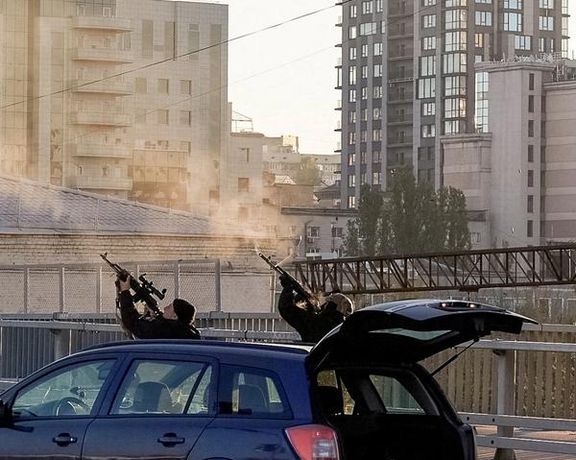
Ukrainian military officials say 12 more Iranian-made drones were shot down in the latest Russian attack on the capital city, Kyiv.

Ukrainian military officials say 12 more Iranian-made drones were shot down in the latest Russian attack on the capital city, Kyiv.
Serhiy Popko, head of the Kyiv city military administration said on Monday that the debris from a drone fell on a residential building in an area west of the capital. It caused major damage and a fire that was put out quickly, but no casualties were reported.
The Ukrainian Air Force announced Tuesday morning that Moscow had launched a total of 15 Iranian-made Shahed drones on Ukraine late Monday, with the air defense shooting down 14of them.
Last fall, Russia began using drones in its attacks against Ukraine's infrastructure, temporarily depriving millions of Ukrainians of heating, water and electricity during the winter.
The Ukrainian military reports that the probability of further missile and air strikes across the country remains high.
Ukraine says its air force has shot down more than 500 Iranian drones so far; an issue that Western countries have also confirmed.
Several countries such as the US and European Union have sanctioned Iran for its provision of drones in Russia’s war on Ukraine.
Iran has denied sending drones to Russia for months, but with increasing evidence, Foreign Minister Hossein Amir Abdollahian finally admitted the issue in November last year. However, he claimed that the deployment of drones was "limited and before the war in Ukraine".
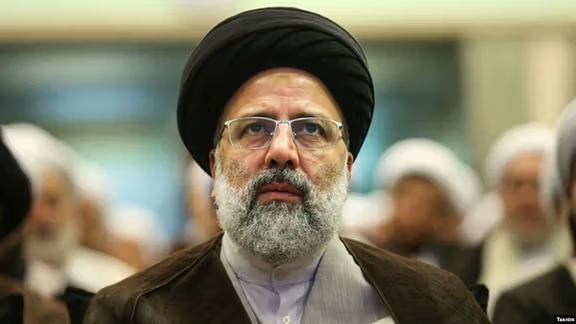
Iranian lawmakers have slammed the government's economic and other policies in interviews during Nowruz holidays as people complain about rising prices.
Ramezan Ali Sangdovini, representing Gorgan told Rouydad24 website that "Iran is overwhelmed by mismanagement." He added that "even those neighboring countries that are affected by wars are doing better than us."
Iran’s currency, rial, dropped to unprecedented lows right before the Nowruz, creating more chaos and despair for a population which has lost most of its purchasing power since 2018, because of US sanctions and a mismanaged economy.
Sangdovini stressed that "mismanagement is seriously endangering the integrity and authority of Iran's political system." He added: "Iran has no problem in resources and capital. All our problems are caused by mismanagement of resources.”
He reiterated that most of government managers are not fit for the positions they hold. Furthermore, the way they treat the people is less than perfect. Sangdovini said that the government cannot manage the falling national currency, rising prices and inflation rate.
He dismissed official comments about the "enemy's role in rising prices," and said the government is responsible. "The price of items such as dairy and gasoline is absolutely under the government's control. But it is not clear why the government refuses to keep the price of these items low."
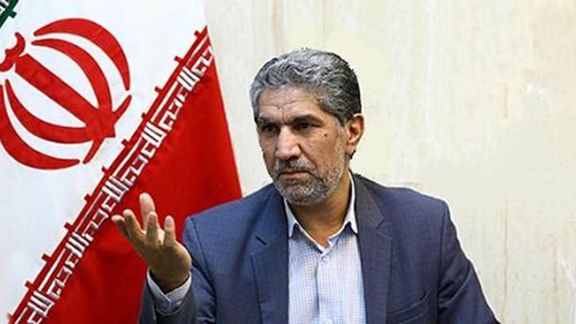
He warned the government that currently a large part of the population cannot afford to buy a kilo of meat. He added that the government has refused to send ministers to the parliament to answer lawmakers. The only solution for the Majles is to impeach the ministers," Sangdovini said.
Earlier, some lawmakers, including former nuclear chief Fereydoun Abbasi had said that the country's economic situation can only get worse, adding that the government lacks the will and authority to solve the problem.
Many politicians and commentators have been urging the regime to reach an agreement with the United States over its nuclear dispute and try to remove crippling sanctions, but so far talks with the West remain suspended.
Meanwhile, another lawmaker, Jalal Mahmoudzadeh told reporters that the only way to sort out Iran's economic chaos is to summon President Ebrahim Raisi to the parliament. "Not only there has not been any progress in fixing the economic since Raisi took office in 2021, but the country has even lost ground in some areas as a result of the government's inefficiency."
He added that the parliament should deal with the matter and step in to sort out the problem once and for all. "We should summon Raisi to the Majles and question him and demand convincing answers from him; and if we are not convinced, then we should use the parliament's supervisory leverage," meaning to impeach the President. "He is the chief executive and should be accountable for the current situation," Mohammadzadeh said.
He reminded that when Raisi took office, he promised to control inflation and boost the national currency. He also promised to create four million jobs during the four years of his presidency. We see that not only none of these have happened, but Iranians lost 10 million jobs because of restrictions the government has imposed on access to the Internet. This comes while based on Raisi's promises, he should have created 1.5 million new jobs during this period.
Meanwhile, Mohammadzadeh warned lawmakers that if they fail to make Raisi accountable for his poor performance, their own electability will be at risk in the next parliamentary election in 2024.
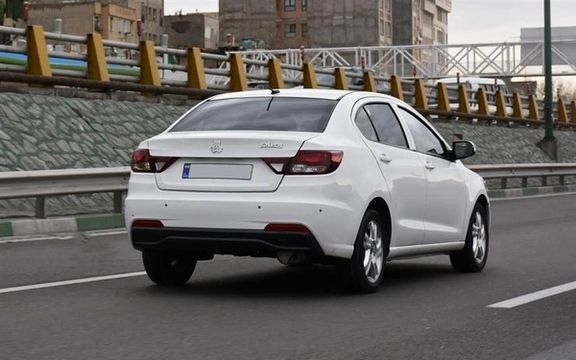
As relations between sanction-struck Moscow and Tehran heat up, Russia has begun to sell Iranian cars responsible for countless deaths on Iran’s roads.
The Iranian made Shahin, manufactured by Iran’s Saipa, which has been beset by quality issues, will be on sale in Russia from June. Iranian officials, politicians and media have often blamed the inferior quality of domestic cars for a high rate of accidents over the years.
Between 2008 and 2018, 280,000 people died in road accidents, although there are no estimates of how many of these deaths were directly related to mechanical problems with domestic cars.
Tass news agency quoted Alexander Stepanov, CEO of Best Motors as saying that the company plans to sell at least 10,000 cars and open up to 120 dealerships in Russian regions during the first year.
The contract with Saipa is intended for three years and Best-Motors is going to sell 45,000 cars over that period.
Earlier, head of Iran's Trade Promotion Organization (TPO) Alireza Peyman-Pak stated the value of the Russian car market is approximately $20 billion.
“The withdrawal of other car companies from Russia, in response to the imposition of Western sanctions, has opened up opportunities for Iranian carmakers to secure a substantial portion of this market, providing them with a competitive advantage,” he added.
Shahin’s outdated technology dates back 30 years, based on Chinese standards
It offers a boost to Iran’s ailing auto industry which accounts for a large percentage of the nation’s non-oil exports and employs nearly 800,000 workers.
The two major car manufacturers, Iran Khodro and Saipa, are both state-owned, while a smattering of smaller firms are privately run.
With a rising public outcry over the waning quality and safety of indigenously-made cars and the surge of traffic-related accidents, calls for the liberalization of imports have gained momentum.

Egypt will soon allow Iranians travelling with tour groups to obtain visas on arrival in the south of its Sinai Peninsula Egyptian tourism ministry officials said.
The decision is part of a series of measures announced on Monday aimed at improving access to visas to boost tourism revenues at a time when Egypt has been struggling economically with an acute foreign currency shortage.
It also comes as some Middle Eastern countries including Egypt are taking steps to ease regional tensions. Egypt's Sunni Arab ally Saudi Arabia and Shi'ite Iran announced this month that they would restore diplomatic relations.
Cairo has mended a rift with Qatar and is re-establishing ties with Turkey, another country to benefit from new visa rules with Turkish nationals given expanded access to visas on arrival, according to a Egyptian Tourism Ministry statement.
Among the other new visa rules announced were a $700, five-year multiple-entry visa, which Tourism Minister Ahmed Issa told Reuters was aimed at investors and property owners who are based outside Egypt.
On visas for Iranians arriving in South Sinai, home to the highly secured resort of Sharm el-Sheikh, Issa said, "We will evaluate the experience of their arrival in South Sinai as a first step, and building on that, we'll determine if they will be admitted in other places."
Relations between Egypt and Iran have generally been fraught in recent decades although the two countries have maintained diplomatic contacts.
Tourists from China, which Egypt regards as a market with big potential, and Indians resident in Gulf countries will also be granted visas on arrival.
All new visa rules have been approved in principle and will be put into effect soon, a tourism ministry official said.
Reuters report
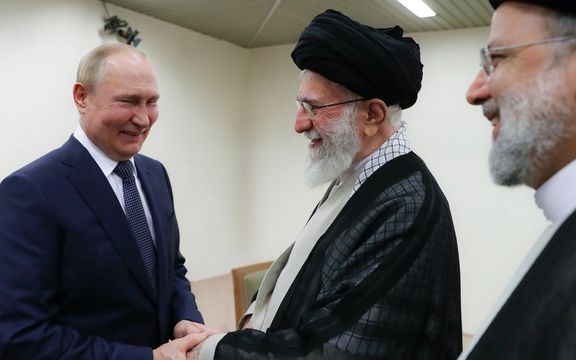
As the US weighs Iran's destabilizing actions across the Middle East, the United States now has to deal with Tehran’s expanding cyber cooperation with Russia.
Challenges posed by Iran continue to grow, forcing the Biden administration to take more of a hands-on approach to the regime than it possibly wanted.
While Iran supplies drones and reportedly other weapons to Russia, its proxy forces attacked US bases in Syria last week, with the US launching a rare retaliatory strike, but emphasizing its goal of avoiding a wider conflict with Tehran.
The WSJ reported Monday that Moscow’s burgeoning military cooperation with Tehran includes a plan to help its sanctioned ally’s cyberwarfare capabilities, according to the Journal’s sources.
The US State Department has avoided a direct response to the report. Deputy spokesperson of the US State Department Vedant Patel was asked during his press briefing Monday to react though strangely, said he had not seen it, although the article was published hours before the briefing took place.
Patel did, however, publicly comment that there is no doubt about the concern felt in the White House. “What I will say is that of course Russia’s deepening of relationships with malign actors like Iran continues to be a deep concern,” he said.
He added, “We have seen the havoc caused by Iranian-made drones that Russia has unleashed on Kyiv, targeting energy and civilian infrastructure, so of course this relationship is one that we are paying close attention to.”
Iran, which never condemned Russia’s invasion of Ukraine, began supplying kamikaze drones to its ally in mid-2022. US National Security Advisor Jake Sullivan warned in mid-July that Russia was seeking to obtain Unmanned Aerial Vehicles (UAVs) from the Islamic Republic.
The first Iranian drones were used by Russia in noticeable numbers in October and first evidence of a UAV downed by Ukraine emerged on October 6.
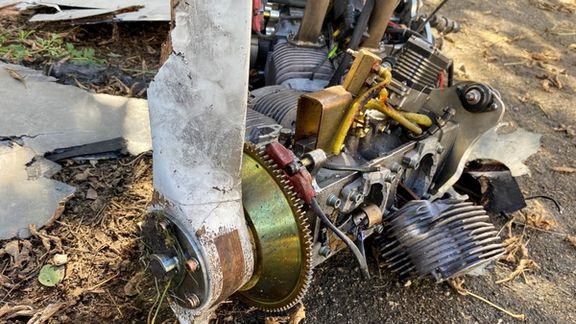
The WSJ quoted sources as saying that Russia has been providing Iran with communication, surveillance and eavesdropping capabilities, photography devices and lie detectors from the start of the war in Ukraine.
This is when talks in Vienna to revive the 2015 nuclear accord with Iran broke up, despite intense Western efforts to reach a compromise with Iran. In August, the European Union offered one final plan that according to Washington Tehran did not accept, by putting forth new unacceptable demands.
It is not clear to what extent Russia’s technical assistance is geared toward boosting military capabilities or Iran’s policing resources against dissidents. Surveillance technology in many cases can have dual use too. Tehran already has an extensive system of digital surveillance over its population much like China and it widely censors the internet.
As local media is under heavy government control, Iranians rely on messaging apps to receive news and exchange information. This becomes even more crucial during protests, when news about rallies and gatherings becomes a mobilization tool for protesters.
The government banned Instagram, the one accessible major platform last year to prevent communication between the people and news reaching the outside world about the protests.
Seeing this as insufficient, authorities also resorted to denying access to the Internet in wide swaths of the country for months, hurting millions of people who relied on digital commerce to make a living.
China has also been assisting Iran’s digital surveillance programs. In December, the United States blacklisted China’s Tiandy Technologies for supplying video surveillance equipment to the Revolutionary Guard (IRGC).
Western countries, Israel and Saudi Arabia have in the past reported frequent Iranian cyber-attacks on government and private institutions. Social media giants Facebook and Twitter have closed thousands of fake Iranian accounts for spreading disinformation.
What this means for Iranians and for wider geo-politics is yet to be seen, but what is clear, is that the desire for Biden to quietly leave the Middle East behind, is ever-more unlikely.
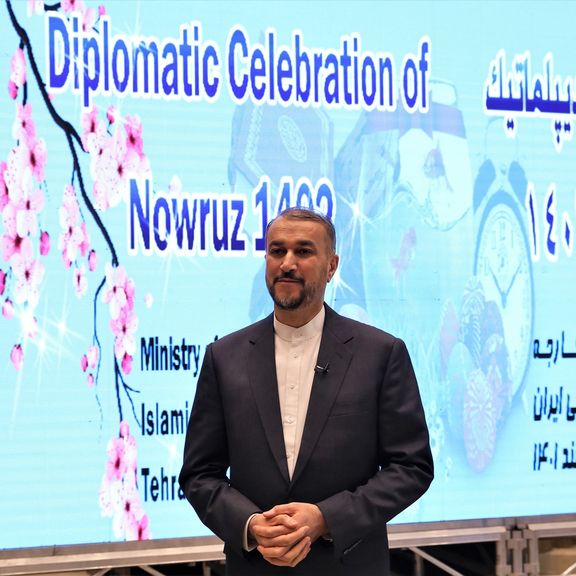
Iran’s Foreign Minister Hossein Amir Abdollahian says the Islamic Republic is going to invite King of Saudi Arabia to visit Tehran even though the ageing monarch’s last foreign visit was four years ago.
In a bid to show the success of the recent detente with its regional rival, Abdollahian has been overblowing the ideas of a royal visit.
The ageing Saudi king’s last foreign trip was in 2019, since then, his son and de facto ruler, Mohammed Bin Salman, taking over all overseas duties. In spite of denials from the kingdom, it is widely believed the King has dementia and his role in public life continues to lessen.
The country’s foreign ministers, Saudi’s Prince Faisal bin Farhan and his Iranian counterpart, Hossein Amir Abdollahian, have spoken twice over the last week to discuss details of the new relations, after a deal brokered by Beijing broke a diplomatic deadlock dating back to 2016.
Pro-regime mobs attacked the Saudi embassy in Tehran following the execution of a Shiite cleric in Saudi Arabia, causing years of hostility.
However, as Iran’s proxy militia in Yemen, the Houthis, continues to attack Saudi-led coalition in spite of a weak ceasefire, it will not be plain sailing as the two rivals thrash out the fine print.
Iran will no doubt be reluctant to abide by the conditions of exerting greater control over its proxy militia which has been the thorn in Saudi’s side since the war in Yemen broke out eight years ago.